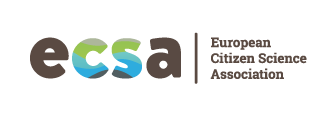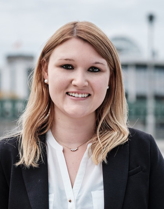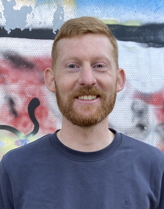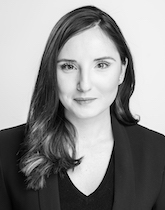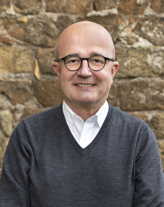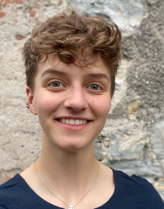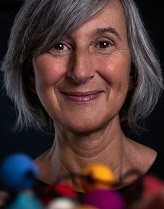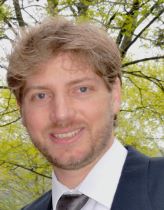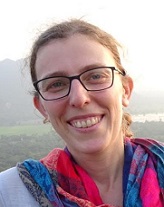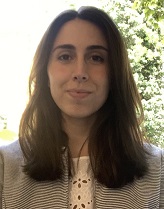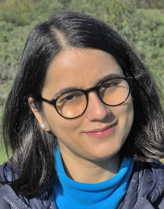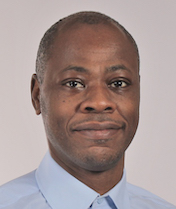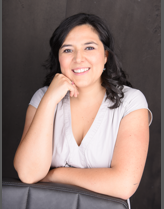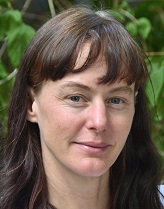This year’s ECSA General Assembly will be held online on 27 November 2020, 14:00-18:00 CET.
Please register in advance, by 23 November 2020 at the latest, using this Zoom link.
All ECSA members are invited to join us. You can see the agenda for the meeting here.
Amendments to the statutes are proposed this year. You can view the English version and the German version. The amendments to the statutes come into force as soon as they have been confirmed by the general meeting and entered in the register of associations by the local court in Germany.
Under this link you will find the ECSA Annual Report 2019.
During the General Assembly, ECSA members will elect a new Executive Board and a new Board of Directors. You can read more about the candidates below; click on the small arrow to see their personal profiles.
Please find an overview of the nominations for the Advisory Board further below.
Applications for ECSA Executive Chairs
I am writing this message to share with you my interest in running for the position of ECSA Vice-Chair.
I have been an active member of ECSA since 2015. My engagement in the Association has been growing progressively throughout time, culminating with the organization of the ECSA2020 conference.
I have a strong interest in citizen science, and as CEO of Sissa Medialab I have been promoting citizen science initiatives in Trieste since a few years. I am also involved in the growing Italian citizen science community and supporting its activities.
I feel confident that my expertise could be beneficial to ECSA and I would very much like having the opportunity to keep contributing to the growth of the Association and its strategic development throughout such an important phase for citizen science in Europe.
In the past I have been serving during six years on the board of EUSEA, the European Science Engagement Association, as Vice President until 2016, as treasurer until 2019.
I have sound leadership skills and vast experience in science engagement and scientific research, having worked as CEO of Sissa Medialab for over 15 years.
While leading the organization of the ECSA conference I had the opportunity to familiarize and interact with several ECSA members while building a positive and collaborative environment with them.
I believe my experience aligns well with a meaningful contribution to the Association and, if I were to be elected, I would look forward to engaging in this new endeavour.

First things first. My vision for ECSA – over the next years, I see ECSA becoming:
- the established reference point for citizen science in Europe, at the scientific and policy level;
- a reliable and competent partner – and an accelerator – for the development of citizen science among the global community;
- a facilitator and knowledge broker for science, policy and society;
- an active player in the implementation of citizen science approaches in Europe.
At the same time, I hope it will continue to be the vibrant, creative, transdisciplinary community that it is today. I feel confident to lead the Association as a co-chair towards the achievement of those goals, embracing the opportunities and challenges that lay ahead of us.
Why me? My engagement with citizen science started about 10 years ago when I was involved in the German mosquito atlas as a science communicator. It was love at first sight – the openness of the field, the interdisciplinary, transdisciplinary approaches as well as the scientific impacts of the collaboration between scientists and citizens drove me into the endeavour. A first milestone was the foundation of the European Citizen Science Association. As a charter member of ECSA, and as a European citizen, I have ever since closely supported ECSA’s development from the beginning; e.g. through active participation in various working groups, organising the first ECSA conference in 2016 and being a member of the Board of Directors since 2019 – and amongst others, on the research side, being part of the author team creating the ECSA Citizen Science Characteristics and teaching citizen science communication. Also, I am currently member of the steering committee for the German White Paper for citizen science. Since October 2020, I am leading the German citizen science platform Bürger schaffen Wissen in Germany at the Museum für Naturkunde.
I put emphasis in maintaining and developing the international citizen science network, e.g. with the US American CitSci Association, the communities in the AustralAsian Region and the German speaking communities in Austria, Germany and Switzerland.
Colleagues and friends describe me as being an open-minded leader, creative, highly organised and with the skills to implement ideas and overcome challenges. I am also a team player and perform best when I have the room to manoeuvre and make decisions for the benefit of the purpose. As ECSA co-chair, I will bring these strengths to the development of the association. I am looking forward to the collaboration!
How can the ECSA Chair drive change towards the achievement of greater civic competence, a greater role of citizen science in modern research and a better future? One way is to use citizen science to empower additional people to join the debate about the future (especially the future of the management of the environment). A complementary way is by providing information to others and opening up opportunities for others to learn. This challenge has guided my career as an activist and professional, and today it brings me to apply for the ECSA Chair position. As a member of the Science, Policy and Innovation department at Earthwatch, I am in charge of driving citizen-science–related concerns into international projects. As you probably know, Earthwatch is a leading partner in several citizen-science European projects, such as EU-Citizen.Science, MONOCLE and Cos4Cloud. And I am currently coordinating the largest effort to formally measure the impact of citizen science, through the MICS project. It is a stimulating task, and my role is (1) to actively support project consortia in their international efforts to address challenges related to the impact of citizen science, and (2) to better understand and manage the relationship between citizen science and technology. Deeply committed to alliance-building, my vision is to contribute to scaling up the citizen-science discourse also in predominantly technological arenas.
I want ECSA to support all citizens to achieve greater civic competence, and the association to succeed in achieving a more significant role of citizen science in modern research, including Horizon Europe. I would like to specifically support the part of the work programme related to the creation of a participatory system to develop and share tools for citizen science. I want to support the promotion of global and open technologies that could be used as channels to retrieve citizen-science data and provide information to citizens, researchers and decision-makers, adopting at the same time good practice around anonymity. I want to support the development of tools (e.g., an ontology for knowledge representation in citizen science), which will be maintained and expanded according to technological evolution and users’ demands, with the technical products stored in an open repository, in which participants may contribute their tools (or adapting existing ones to new requirements). My vision for the position also includes following up on current governance efforts, creating and leading a working group, across the Board and the members of the association, dedicated to the rewriting of the statutes to reflect better how ECSA works and is managed.
Application for ECSA Treasurer

I am the current treasurer of ECSA (2018-2020), Director, Research and Innovation Partnerships at GAC Group, France, and an enthusiast of citizen science. My initial background is in natural sciences (geography), and I have been specialized during the last 15 years in innovation management, including the exploitation of research results and financial management. Thanks to the mixture of my skills, I look at the finances from both accounting and strategic point of view, thus contributing to the organisational growth of ECSA during the past 2.5 years.
Together with ECSA Managing Director, Dorte Riemenschneider, we started to implement synergies between different activities of ECSA, optimizing expenses and creating synergies budget-wise. We also introduced procedures avoiding bureaucratic burden, such as the periodic budget-related on-line discussion on demand. In 2018-2020, project-based ECSA activities have grown significantly: for instance, just in summer 2020, 4 Horizon 2020 proposals with ECSA involvement have been selected for funding by the EC. This is a great success of the ECSA team, but it was also a challenge in 2018-2019, especially since some ECSA staff responsible for budgeting were not used to the EC-project budget. I was the coordinator of ten FP7/H2020 projects in the past, each ranging from 450K to 3M Eur, this knowledge has been helpful when ECSA Managing Director had to deal with complex budget issues. Now, additional challenges are ahead of ECSA, and diversification of budget sources is needed.
My support was not limited to budget-related issues. For instance, I initiated the organisation of a citizen-science related workshop with the involvement of ECSA as part of the international EU-US H2020 project Bilat USA 4.0, which was then implemented by the project partners. Furthermore, with my proposal and support from different contributors, Policy recommendation to the European Commission “EU-Eastern Partnership Beyond 2020” (Bonas et al., 2019) now include a recommendation to extend research and innovation collaboration between the EU and Eastern Partnership countries to citizens science.
I have been encouraged by ECSA Managing Director to re-apply for the position of treasurer, and I am willing and able to continue this support by focusing on budget-related issues, to contribute to the development of ECSA.
Applications for ECSA Board of Directors
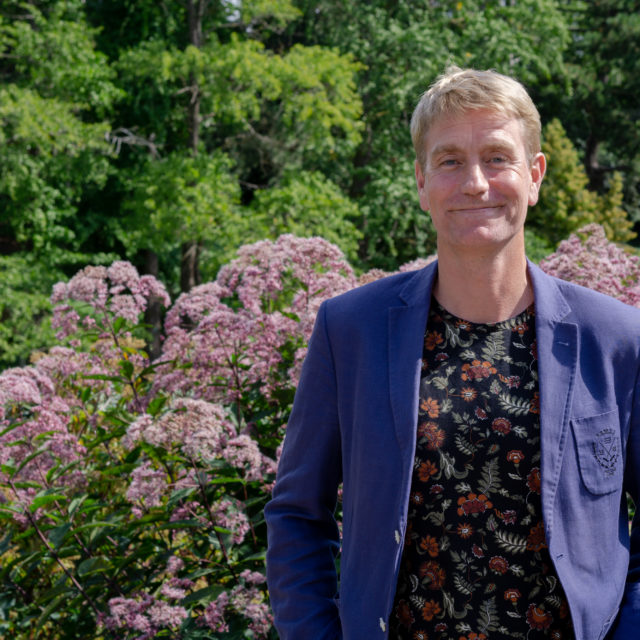
I have been applying Citizen Science throughout my career. At first using Citizen Science-data, later on developing Citizen Science-projects, and during the last two years leading a Citizen Science research section at the University of Copenhagen.
I believe I can contribute to the ECSA execute committee with my experience, commitment and broad interest in Citizen Science. My motivation to join is to expand networks, increase collaborations and put Citizen Science on the political agenda. As an employee at a national museum based at a university, I believe that engaging in international organisations, seeking international partnerships, both personal and institutional, is an important part of my work.
On a personal note: I am in fact a citizen scientist myself. It was my way into academia. For me, it started by reporting my bird observations to the local bird observatory and seeing my records being published and used to document the annual avian migration and monitor local breeding birds. To me it was both a huge motivational factor and it sparked a curiosity that has followed me ever since. In my own work, I have often seen this happen for other people. Even the smallest flash of increased understanding or interest is always a big satisfaction to me.
Overall, I have the ambition of bringing people closer to research. I believe we need Citizen Science to fight fake-news and I think Citizen Science is an obvious opportunity to engage people in the scientific process, which I believe is the best way for motivation, learning and collaboration.
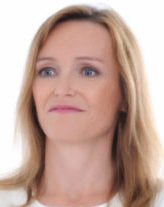
Citizen Science has been a topic of research for me since 2012 when my colleagues and I were invited to join a European-funded project on Citizen Science. The White Paper on Citizen Science for Europe was an important output at that time (2014) and is still of relevance. The same year ECSA was established, and in parallel Citizen Science started to take on a rapid development across the globe. So, a lot has happened since my first contact with Citizen Science and is still happening. The field is evolving continuously, research policy agendas are building on participatory research methodologies and we are experiencing the impact that has been generated globally by Citizen Science initiatives, including contributions to the United Nations SDGs. My field of expertise lies mainly in studying and facilitating participatory activities in Citizen Science and relating them to a participatory way of evaluating the process itself as well as the outcomes and impacts. Thus, I would be happy to contribute with this expertise to support the European Citizen Science community in its aim to grow and implement inclusive participatory processes in research for the benefits of both science and society.
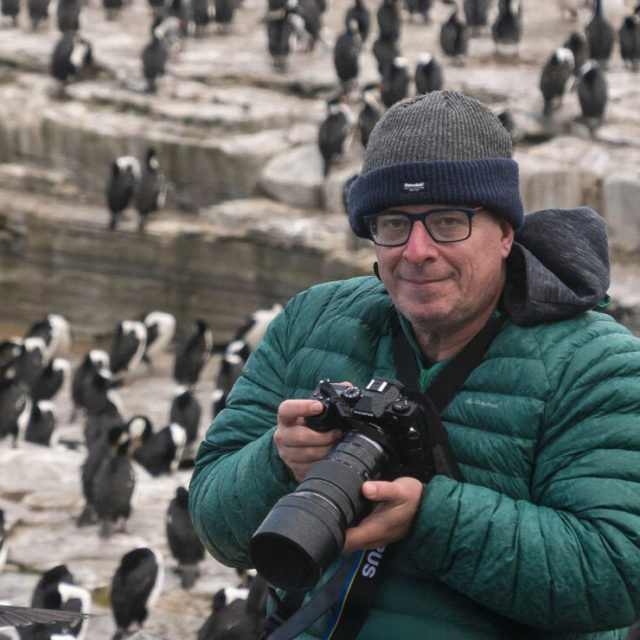
My name is Jaume Piera and I am a researcher at the Institute of Marine Sciences. I have been involved in ECSA since nearly its constitution, being part of the Steering Committee and chairing the WG “Projects Data Tools and Technology”.
My main interest in Citizen Science has been focused on the technologies and infrastructures that facilitate the development of Citizen Science projects (from the development of DIY sensors and Apps, up the holistic design of Citizen Observatories).
Among the different international project in which I am involved, I am coordinating the H2020 project Cos4Cloud, where we plan to connect the Citizen Observatories with the European Open Science Cloud. We participate in the H2020 Panelfit project as well, where we address the challenges of ethical and legal framework for citizen-science digital data.
In both projects I had the opportunity to engage ECSA as a project partner.
I think that I could contribute to the Board of Directors mostly on the related topics mentioned above, which I hope will complement the expertise form the rest of the Board members.
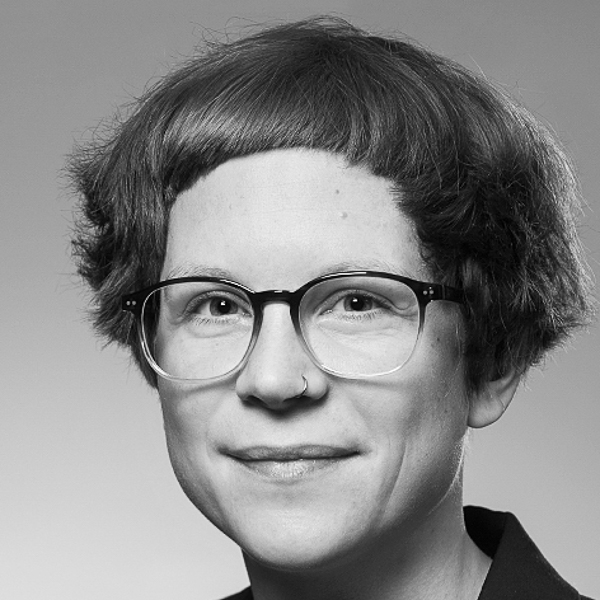
The European Citizen Science Association (ECSA) is an important player in the European citizen science landscape. ECSA promotes and strengthens European and international research cooperation. ECSA bundles actors and discussions, provides important impulses within the working groups and promotes further development of the citizen science community. At the same time – and this is something I appreciate very much – ECSA succeeds again and again in focusing on the community. I got to know ECSA during my work as project manager in the eu-citizen.science project. ECSA is responsible for the community management. It has always impressed me how consistently the community and its heterogeneous nature has been taken into consideration and consistently brought into the discussion as a strong corrective in the scientific debate.
An important topic for ECSA in the coming years will be the adoption of the eu-citizen.science platform, which is establishing itself as an important networking, exchange and communication platform for the various actors and stakeholders in the Citizen Science community. I would like to participate in the discussions on how the platform can be thought of, how the needs and interests of the community can be documented and translated. This is both a permanent dialogue and a way of creating visibility and working towards the platform being adopted by the community.
After my time at the Museum für Naturkunde Berlin in the eu-citizen.science project, I am now responsible for establishing and expanding the field of participatory research, especially Citizen Science, at a technical university. For me, Citizen Science represents an exciting form of inter- and transdisciplinary research that has the potential to provoke traditional structures and values within science and to call for renegotiation. In order to lead these discourses successfully, a strong community is needed – I see it as a task of ECSA in which I would like to participate.
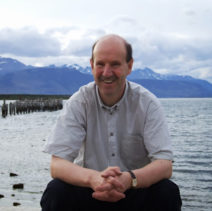
I am a passionate citizen scientist, a founder member of ECSA and experienced international citizen scientist who has campaigned, lectured and championed citizen science across the world. Currently the international coordinator with the UN for the Citizen Science Global Partnership I would like to offer my services to the ECSA Board to help shape and grow ECSA over the next three critical years so that it continues to support you its members. I bring a wealth of experience from the public sector and a deep understanding about how the EU can work with citizen scientists. I know how citizen science at scale can make a difference to EU policy as we seek to tackle the major environmental and health challenges of our time. I also have extensive academic, private and NGO networks that will be beneficial in building a secure business plan that will help ECSA to expand its sphere of influence across Europe. As the person who arranged the launch of ECSA in 2013 and who set out the original vision for our organisation I would now like the opportunity to shape and guide ECSA on the next stage of its development. I hope that I will have your support.
I am a Founder Member of ECSA and the Citizen Science Global Partnership and Former Executive Manager of the Environment Agency (England & Wales) and currently Independent Environmental Consultant.

I am passionate about the role that citizen science can play in society to tackle societal challenges that matter to citizens from the bottom-up. On the one hand, it has the potential of generating new sets of data, or complementing existing ones, which may not be possible to be obtained otherwise, thus contributing to the advancement of science. On the other hand, it represents the deepest form of public engagement in science, and thus contributes to increase societal scientific literacy and critical thinking, while raising awareness and potentially triggering processes of behavioural change. It empowers citizens to actively participate in local decision making, promotes access to environmental justice and goes beyond Principle 10 of Rio Declaration, since citizens are not only granted access to environmental information, but they become data generators themselves. Thus, citizen science can actively contribute to the commitments of the Aarhus convention. It has the potential to inform better and more inclusive public policies and to contribute to the SDGs.
But implementing citizen science projects is not easy. During the first cluster event of H2020 Citizen Science Projects in December 2019, the community highlighted common challenges and needs, including the necessity of common infrastructures, the issues of project and community engagement sustainability, data analysis and data validation requirements, the need to increase trust in citizen-generated data – both within the scientific community and for increasing their use as official data by public authorities, and the matter of impact measurement, scalability or inclusivity. I have been facing personally all these challenges during the execution of the D-NOSES project and its 10 pilots – happening in different countries and socio-economic contexts.
I am currently coordinating NEWSERA to help the community reach its target quadruple helix stakeholders through innovative communication strategies, another common barrier to the successful implementation of citizen science projects. It is also necessary to continue pushing forward citizen science in the European policy framework and in Horizon Europe, following the good news of the publication of the first Commission staff working document on Best Practices in Citizen Science for Environmental Monitoring. Finally, we all need to demonstrate that doing citizen science does not equal “free data”, but indeed requires a huge effort in terms of community engagement, project deployment, and interdisciplinary knowledge, which should be reflected in appropriate budget allocation for citizen science projects. If elected, I would be delighted to contribute to the advancement of those aspects in benefit of the ECSA community.

For a little more than two years, I have been working at the Participatory Science Academy at the Citizen Science Center in Zurich. Trained in Political Science, with many years of experience at the intersection of research and administration, and a deep commitment to social justice issues, I have started the job with a keen interest in the potentials of citizen science to make science more relevant and to open up new channels and formats of participation and dialogue. The Participatory Science Academy seeks to enable researchers and citizens to engage in co-creation and develops training and workshops with this goal in mind; thus focusing on “phase zero” in the research process. The focus on co-creation includes a conviction that facilitation and a focus on methods of collaboration are crucial for a form of citizen science that takes participation seriously.
One of the most rewarding experiences in citizen science in the past years has been the involvement in the community and the many conversations and encounters I have had with colleagues. I have rarely engaged with such a supportive community, which is willing to share experiences, learnings, successes and failures. Switzerland is home to a diverse citizen science community and I am currently working with colleagues to facilitate more exchange and collaboration in Switzerland.
As part of the ECSA Board of Directors, I would like to bring my experience with training formats for diverse audiences to the Board to draw attention to this important aspect of citizen science. I have furthermore gained experience with working with a focus on impact and find this a useful lens to employ when engaging in citizen science. A native of Germany, I draw on experience as a board member of different associations under German law. I would like to offer my experience and expertise to the Executive Board to let ECSA become THE reference point for different forms of citizen science in Europe and beyond.
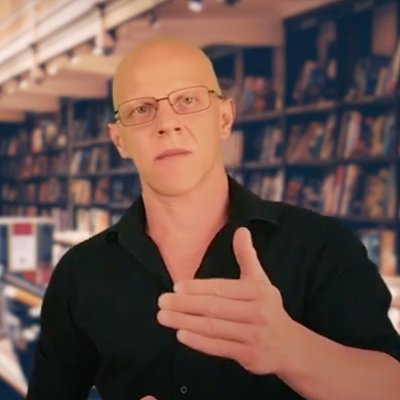
I believe citizen science could hold a more central role in our society. We need to develop a society which nurtures curious minds and understands the value of discoveries. At the same time, we are living with evidence that at the current standpoint, humankind is not well versed to distinguish between manipulation and evidence.
Moreover, our quest for knowledge has shown more often than not that the current research infrastructures are not able to provide enough resources for making predictable and sustainable steps to new discoveries. Researchers alone could barely explore the obvious questions. Without the support of our entire society, the less travelled routes that could explain the bizarre are too early and too quick abandoned.
Citizen science activities could help to make the change. Europe has a large responsibility to promote such changes, both because of our past and our future. Without the contribution of masses and without building cohesion between what researchers discover and what our society could understand and accept, we are less likely to succeed in making our world healthier and more sustainable.
I am motivated to contribute to a system which shows a great potential to address these opportunities. I come from a particular perspective – of a private company – and I am ambitioned to show that the private sector could contribute, too and is no less valuable than any other sector to promote this change. I combat the bias that tells those private companies are only motivated by profit.
In particular, I wish to contribute to finding new ways in which researchers, society and business could work together to replace manipulation, persuasive algorithms and cheap entertainment with engaging research activities, future-oriented education and with people’s ability to make informed choices.
Short BIO
Tiberius Ignat is the Director of Scientific Knowledge Services. He runs in partnership with UCL Press and LIBER Europe a series of workshops – Focus On Open Science. After being an individual member of LIBER, he became a LIBER Associate. Tiberius is a member of European Citizen Science Association and Citizen Science Association (US) and on the Scientific Committee for OAI11, the CERN – UNIGE Workshop on Innovations in Scholarly Communication.
He graduated Marketing and Commerce at West University in Timisoara and has a PhD in Library and Information Science from the University of Bucharest.
He lives with his wife and two children in Munich. In his spare time, he competes in Ninja Warrior contests.
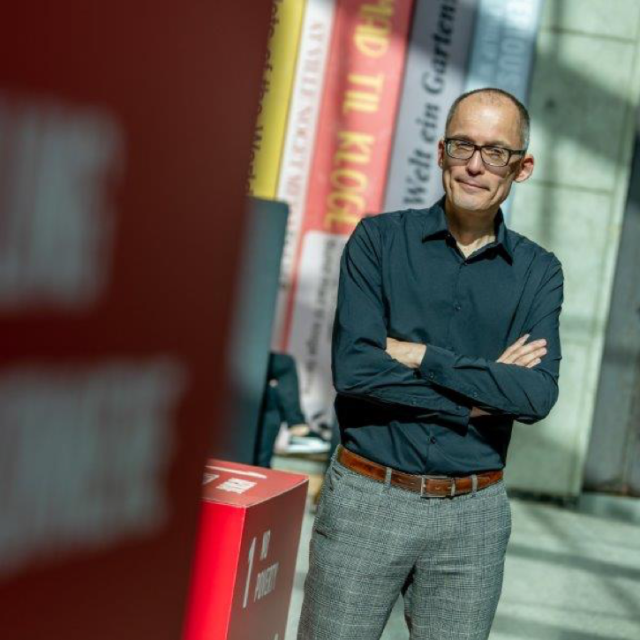
Citizen Science has great opportunities due to a number of reasons. Because of Citizen Science citizens have a critical say in the solving of societal problems, researchers have an opening to conduct innovative science that benefits real people, and universities have a chance to engage societal actors and industries to address the major global challenges.
However, for this to happen, new partnerships, facilitation and infrastructure are critical. To address this, SDU works with a strategic mission based on the United Nation’s Sustainability Goals. We engage citizens and a wide range of societal partners in order to facilitate co-created sustainable research results. Furthermore, we engage not only students at the university, but also students at public schools and high schools in order to urge young learners to become part of the community-based research.
I believe that Citizen Science can help solve some of the major challenges of our time, but it does not happen by itself. If we want to fight post-factual society, climate change, unsustainable food systems, vaccines scepticism and a multitude of other major problems, new roles, infrastructures and partnerships will have to emerge.
It is my conviction that the European governments need to acknowledge data-driven solutions based on the power of many. Innovative industries need to address global challenges. Funding agencies need to acknowledge the benefits of open-ended research. And, critically, universities need not only to endorse Citizens Science and let the thousands of flowers bloom but also engage policymakers, industries, NGO’s and the media to build sustainable partnerships and provide the necessary infrastructure.
This does not happen overnight. But at SDU we are committed to this challenge every day [link: https://www.sdu.dk/en/citizenscience]
Short BIO
Thomas Kaarsted is the Deputy Library Director at the University of Southern Denmark where he co-founded the Citizen Science Network at SDU with Anne Kathrine Overgaard, Head of External Projects, SDU Health Science.
Since January 1st, 2020 he has been the Director of the SDU Citizen Science Knowledge Center.
Thomas has worked with Citizen Science since 2017. He has been the project manager for a wide range of Citizen Science projects and is co-chairing at the SDU Citizen Science Talent Programme for Graduate Students together with Professor Jacob Buur, Design Studies, SDU Humanities.
He is currently Library Fellow at University College London where he is facilitating a Citizen Science strategy on behalf of the UCL Library Services.
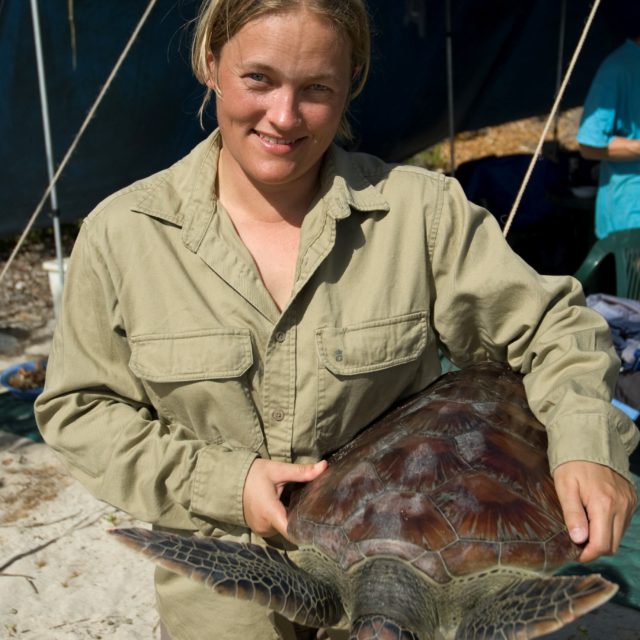
As a volunteer back in the late ’90s, I helped collect data on nesting sea turtles in Costa Rica. That was a transformative experience – not so much the volunteering itself (I had volunteered before), but the realization that I could make a difference through the combination of volunteering and research. I spent the next 8 years facilitating volunteer experiences for Danes in Latin America to allow others to also experience this while doing my degrees to become an ecologist.
The difference volunteer experiences can make for people, nature and society is immense. If we can augment this impact through public participation in our research projects, much more can be gained. But it requires that we leave the comfort zones of our own disciplines, reach out to policymakers, funders, NGOs and the private sector, engage with civil society and build strong networks. I believe diverse networks provide resilience and the opportunities for knowledge sharing, collaboration and advocacy that we need to reach the quadruple helix stakeholders and truly make a difference. I continue to work for this through: the British Ecological Society Citizen Science Special Interest Group since its beginning in 2013 and which I now co-chair; the Danish Citizen Science Netværket that I co-founded in 2018; and my engagement in the ECSA ‘Citizen science networks’ WG.
I believe ECSA has a central role to play in the global citizen science network. As the European reference point for CS for all stakeholders, as a knowledge broker and as the facilitator bringing the European CS community together, for example through the conferences which I have all greatly enjoyed and found very inspirational. It would be a pleasure to put my experience from NGOs, the private sector and academia to good use as a member of the ECSA Board.
Nominations of Advisory Board
-
Dan Stanton
Research and Engagement Librarian (Engagement & Learning Services at Arizona State University).
-
Darlene Cavalier
Professor of practice at Arizona State University’s School for the Future of Innovation in Society, founder of SciStarter and Science Cheerleaders and co-founder of ECAST (Expert and Citizen Assessment of Science and Technology).
-
Henrietta L. Moore
Founder and Director of the Institute for Global Prosperity and the Chair in Culture Philosophy and Design at University College London (UCL).
-
Julie Dirwimmer
Senior Advisor, Science & Society Relations at the Quebec Office of the Chief Scientist
-
Sven Schade
Scientific officer for JRC’s Digital Earth and Reference Data Unit at the European Commission
-
José Miguel Rubio Iglesias
Geospatial Data Management Expert at the European Environmental Agency
-
Renee Sieber
Professor of geography and environment (jointly appointed) at McGill University, in Montréal, Canada
